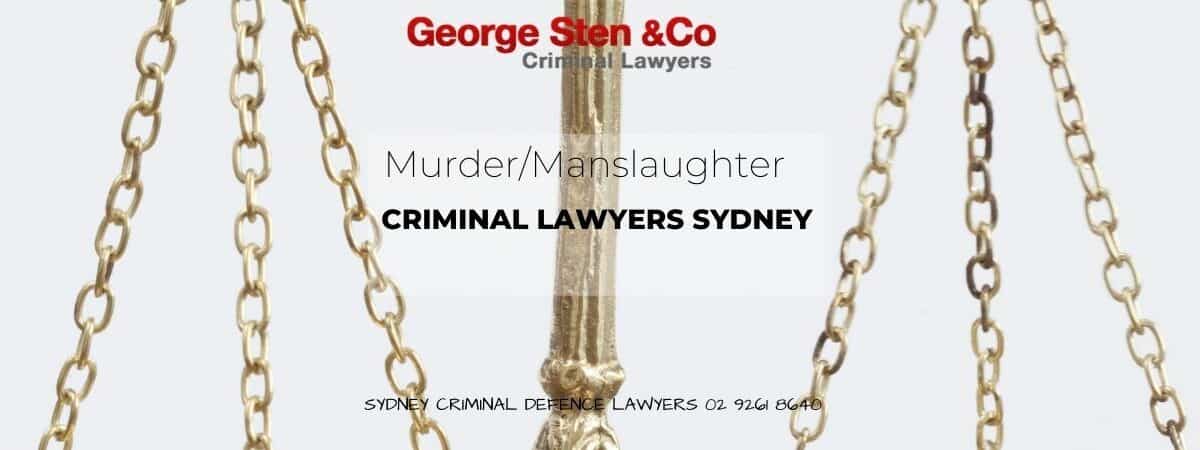Murder and Attempted Murder /Manslaughter section 19A of the Crimes Act NSW provides that a person who commits the crime of murder is liable to imprisonment for life. The elements of the crime that must be proven are:
- that the person accused caused the death of another either by an act or by omitting to act;
- Intention to kill (this second element can include an intention to inflict grievous bodily harm, being bodily harm of a very serious nature. It can also include acting with a reckless indifference to human life, meaning that the accused foresaw the probability that death would result from his or her act or failure to act).
There is also such a thing as “felony murder”, which is a killing committed by the accused or by an accomplice, in an attempt to commit, or during or immediately after the commission of a crime punishable by penal servitude for up to 25 years, such as aggravated armed robbery. This means that people who are involved in committing extremely serious crimes, and in so doing unlawfully kill someone, can be convicted of murder regardless of whether or not they intended or foresaw the particular consequences of their actions.

What is the difference between murder and manslaughter?
If an unlawful killing does not fall into one of the categories above (which are generally referred to as “punishable homicide“), that act will be taken to be manslaughter. Essentially, the guilty act is the same, but the intent of the accused person is different.
There are two categories of manslaughter:
- Voluntary manslaughter – the Prosecution is required to prove the same mental state as is generally required for murder. However, the accused will only be convicted of voluntary manslaughter (instead of murder) where his or her mental state was affected in a way which is recognised by law to reduce culpability for the killing. For example where the accused was provoked.
- Involuntary manslaughter – this is an unlawful killing by a person who cannot be proven to have the requisite guilty mind for murder, but whose conduct falls short of the conduct expected of a reasonable person in similar circumstances.
A brief outline of possible defences
- Duress . Where an accused person claims to have been compelled by a threat to commit the offence charged.
- Self-defence – This defence is premised on the principle of “individual autonomy”. Individuals should have a basic right to repel an unlawful attack in situations where society cannot provide the protection wither against themselves or another. Self-defence is a justification. Society regards an accused’s act of self-defence as rightful conduct.
- Intoxication – An individual may have been so intoxicated as to lack free and rational choice in her or his actions. Consequently, such a person should be acquitted, following the principle of individual autonomy with its insistence on sufficient choice or control over one’s actions before criminal responsibility could lie.
In NSW, the position is that self-induced intoxication can only be taken into account (so as to affect criminal responsibility) where the crime involved is one involving specific intent (eg intent to kill) and where the accused did not resolve to perform that act prior to becoming intoxicated.
- Insanity – If at the time of committing the murder an accused was insane, that person cannot be convicted of the offence – the verdict is not guilty on the basis of insanity, but that person will still be reprimanded in the custody at the pleasure of the Governor.
- Automatism – The Prosecution has the burden of proving that the conduct of the accused was voluntary. Voluntariness is usually assumed unless some evidence can be shown to the contrary. If there is some evidence that the jury could rely upon, the assumption is displaced and the Crown bears the burden of negating the evidence beyond a reasonable doubt. They have to show that the accused had physical control over their own actions.
What is the punishment for murder?
A person convicted of murder is liable to imprisonment for life.
Murder trials are to be carried out in the Supreme Court, which has jurisdiction to hear the matter.
Why use a criminal lawyer?
Given the gravity of the possibly punishment and the complexity of the elements and defences of the crime, it is always wise to have the assistance of a criminal lawyer.
George Sten & Co’s criminal lawyers specialise in this area of criminal law and are able to provide sound legal advice from the time of arrest to the trial and we can also provide advice during parole or bail applications.
With over 50 years experience in this area of law, our criminal lawyers will be able to assist you in building your case and gaining the best possible result. Call our Sydney office today 02 9261 8649.

